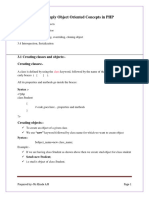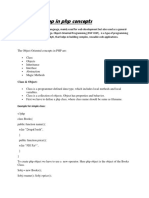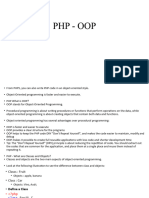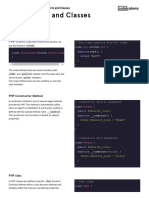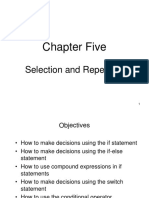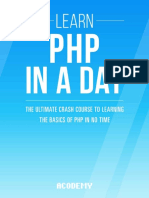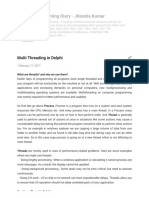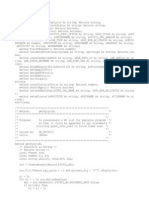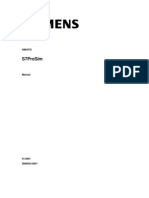0% found this document useful (0 votes)
24 views15 pagesUnit 3 Notes
Inheritance in PHP allows a child class to inherit properties and methods from a parent class, promoting code reusability and structure. PHP supports single, multilevel, and hierarchical inheritance, while multiple inheritance can be simulated using interfaces and traits. Polymorphism, method overloading, abstract classes, interfaces, and traits are advanced OOP features that enhance flexibility and functionality in PHP programming.
Uploaded by
kaidfockshgCopyright
© © All Rights Reserved
We take content rights seriously. If you suspect this is your content, claim it here.
Available Formats
Download as DOCX, PDF, TXT or read online on Scribd
0% found this document useful (0 votes)
24 views15 pagesUnit 3 Notes
Inheritance in PHP allows a child class to inherit properties and methods from a parent class, promoting code reusability and structure. PHP supports single, multilevel, and hierarchical inheritance, while multiple inheritance can be simulated using interfaces and traits. Polymorphism, method overloading, abstract classes, interfaces, and traits are advanced OOP features that enhance flexibility and functionality in PHP programming.
Uploaded by
kaidfockshgCopyright
© © All Rights Reserved
We take content rights seriously. If you suspect this is your content, claim it here.
Available Formats
Download as DOCX, PDF, TXT or read online on Scribd
/ 15




